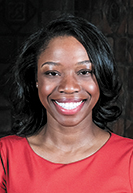Subscriber Benefit
As a subscriber you can listen to articles at work, in the car, or while you work out. Subscribe Now

By Angka E. Hinshaw and Steven H. David
I’m a lawyer, so I’m a good communicator, right? Or at least I have been conditioned to believe that. In my own practice, I listen and respond to arguments all the time. Reflecting on my personal interactions, I would like to think that I take the time to look and listen to the person I am speaking with. So what more could I do? Doesn’t this mean I’m a good listener? If attorneys are supposedly so good at communicating, do I know what am I actually communicating when I interact with colleagues, coworkers and clients?
Let’s pretend for a moment that we are in the law office of David and Hinshaw, LLP. Angka approaches Steve’s door with serious concerns over a current project for a high-profile client. You are a fly on the wall observing Steve and Angka’s interaction:
(Knock on Steve’s office door)
Angka: Hi Steve. Do you have a moment to talk?
Steve: Sure. Come in. What do you want to talk about?
(Steve maintains eye contact with Angka until she is seated and then continues to type on his laptop.)
Angka: I want to talk about the last project meeting. I’m not happy about the meeting and the direction of the project. I’m really concerned whether …
(Steve continues to type and doesn’t look away from his laptop screen.)
Steve: Uh huh … uh huh.
(While still typing on his laptop, Steve’s cellphone buzzes and he instinctively grabs it.)
Angka: Our last meeting didn’t end on a good note. I don’t think we are going to meet our deadlines …
(Steve waves at a colleague who walks by his office. Angka begins to realize she doesn’t have Steve’s attention but keeps trying to make her point.)
Angka: I’m really stressed about …
(Steve interrupts Angka and cheerfully shouts to a colleague who walks by his office to email him later.)
Angka: The other day I saw a leprechaun riding a unicorn through a meadow of cotton candy.
Steve: Yeah … mmhmm … that’s concerning. We’ll have to review that.
(Angka realizes this is not a productive dialogue and thanks Steve for his “time.” As she exits Steve’s office, she is left sad and annoyed by the interaction and wondering why she even tried. Before the end of the day, Angka receives a panicked email from Steve expressing concern over the project – the same concerns Angka tried to raise to him earlier in the day.)
Although this scenario was purely fictional, not based on a real circumstance or event and used for illustrative purposes only, do you relate to the interaction between Steve and Angka? On some level, it’s possible that we relate to both Steve and Angka, depending on the context. We live in a world where everyone multitasks. It is second nature to text while speaking, surf the internet while in meetings and check email during dinner with family or friends. This level of multitasking appears to be peak communication; our fingers are well-oiled machines that can spout off hundreds of words all while we’re talking to others about something completely unrelated.
For young lawyers especially, it’s not unusual to multitask. Imagine a working lunch where all the young associates have phones in their hands while chatting with one another and responding to emails, sending belated text messages, surfing the latest news briefings and sharing the woes of entering the practice of law all at the same time. But if we dive deeper into the actual human interaction taking place in the above scenario, and scenarios across other workplaces, one party usually leaves frustrated and the other clueless about the total lack of communication and progress that just took place. Can a person be truly empathetic and sympathetic to another individual if attention is divided? At the end of the day, we are all people — new, young or veteran attorneys — who want to be heard, appreciated and respected. Imagine how a person who is sharing could feel unappreciated and unheard.
If we’re in Angka’s shoes, we would hope this type of conversation would end with the other person acknowledging his or her own inattentiveness, but usually that’s not the case. Too often we have found ourselves in Angka’s position, where we tried to make a difference and let our concerns be known, only to have our concerns fall on inattentive ears. As attorneys, we’re trained to listen carefully and respond with a position. We’re trained to read carefully and respond with an articulated and thoroughly researched brief. But when we’re speaking to a colleague or someone else, how effective is our communication? Are we positively communicating?
So how do we use the skills attorneys already possess to become better listeners and communicators? We would posit that each of us should follow the great scholar Vanilla Ice’s suggestion to stop, collaborate and listen.
Stop. Stop what you’re doing and give the person your attention. It shows that you value the person and the conversation. It also shows respect. Checking emails, text messages and the time can sometimes be a nervous habit and could be perceived as rude.
If you do not have time for a particular conversation, let that person know. Too often, our Midwestern sense of being “nice” can work against us in these situations. If you truly don’t have time because you’re up against a deadline or running late to another meeting, it is better to communicate that to the person and ask them to follow up later in the day or schedule some time on your calendar. Otherwise, your nonverbal actions may send a message you don’t want to convey.
Collaborate. Once you have stopped and given the other person your full attention (I know your phone just pinged, but avoid the reflex to pick it up!), it’s time to collaborate with them. Collaboration doesn’t always have to involve equal measures of input from each party. It can look more like actively participating in the conversation. Give your colleague or client visual clues that you are interested in what they are saying. Repeat their concerns to make sure you are understanding the point of the conversation. In the above hypothetical interaction, Steve could have collaborated with Angka by saying things like, “Yes, thank you for bringing up this project,” “I never thought of it from that perspective” or “that is certainly a valid concern.” These small verbal confirmations give the other person more confidence and comfort to speak openly about their concerns and show that each party is willing to take an active part in promoting progress for the project.
Actively listen. Once you have stopped to give your attention to the conversation and begin the process of actively collaborating during the conversation, focus on the present conversation and nothing else. This will help you understand the emotions of a person and the context of the topic. When we listen to understand, we listen with purpose. Try to truly listen to the person across from you. Listen not just to the words they are saying, but the emotion behind the words. Are they frustrated? Are they anxious? Try to be attentive not just to the issue at hand, but to that person’s emotions behind the issue they are attempting to convey.
There are many in our profession who are master communicators. Many of us are fortunate to have mentors who take the time to stop, collaborate and listen on a daily basis. We can each learn from their example and take small steps each day to improve our interactions with others. At the end of the day, ask yourself, “Am I listening to respond instead of listening to understand?” If you are the Steve or the Angka in the above conversation, let’s take the first step together and promise to become better listeners. Better listeners make better attorneys, and better attorneys make a better world.•
• Angka E. Hinshaw is the immigration supervisor at the Marion County Public Defender Agency and a member of the Indiana Judges and Lawyers Assistance Program Advisory Committee. Steven H. David is an Indiana Supreme Court associate justice. Opinions expressed are those of the authors.
Please enable JavaScript to view this content.
